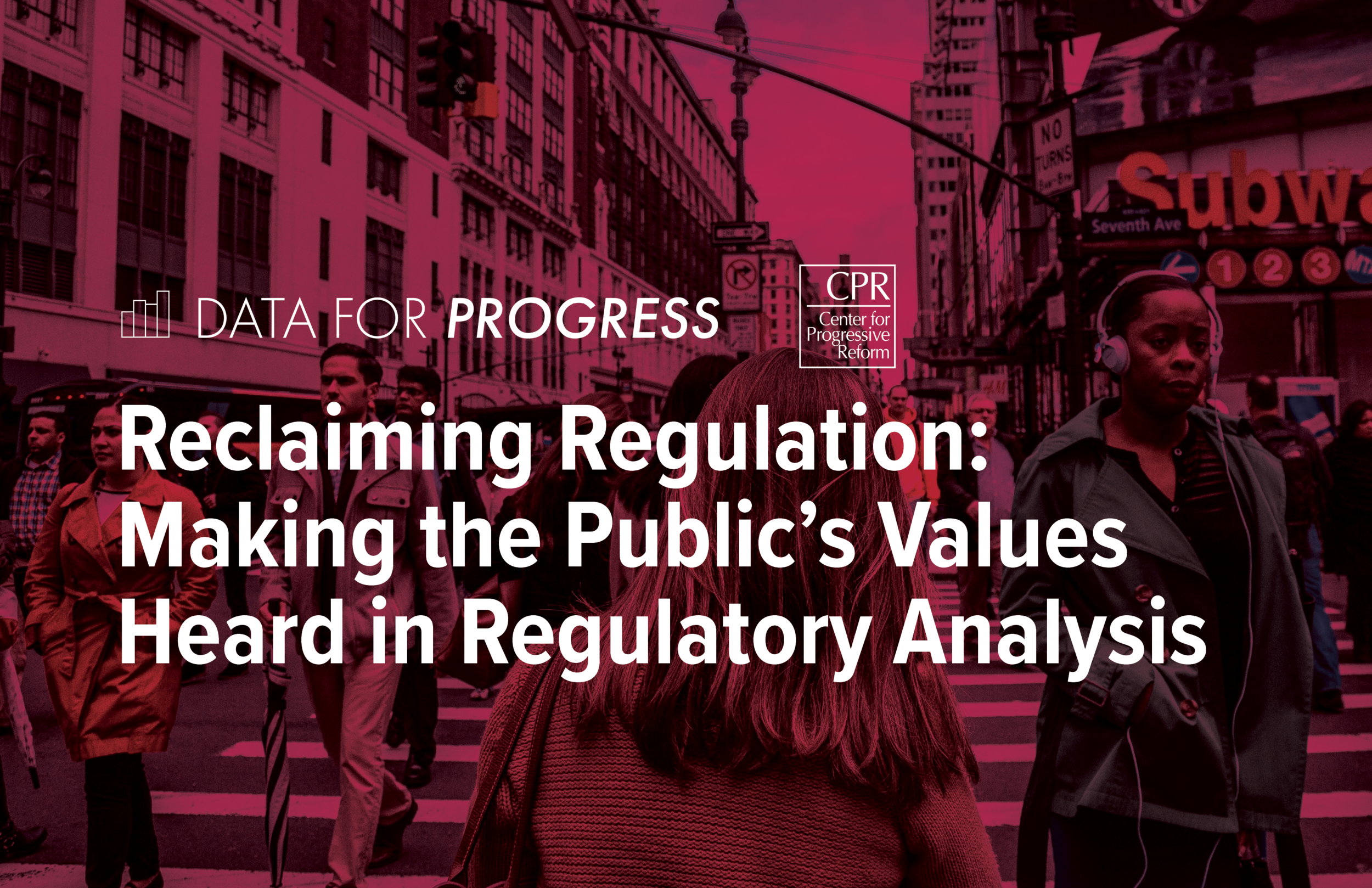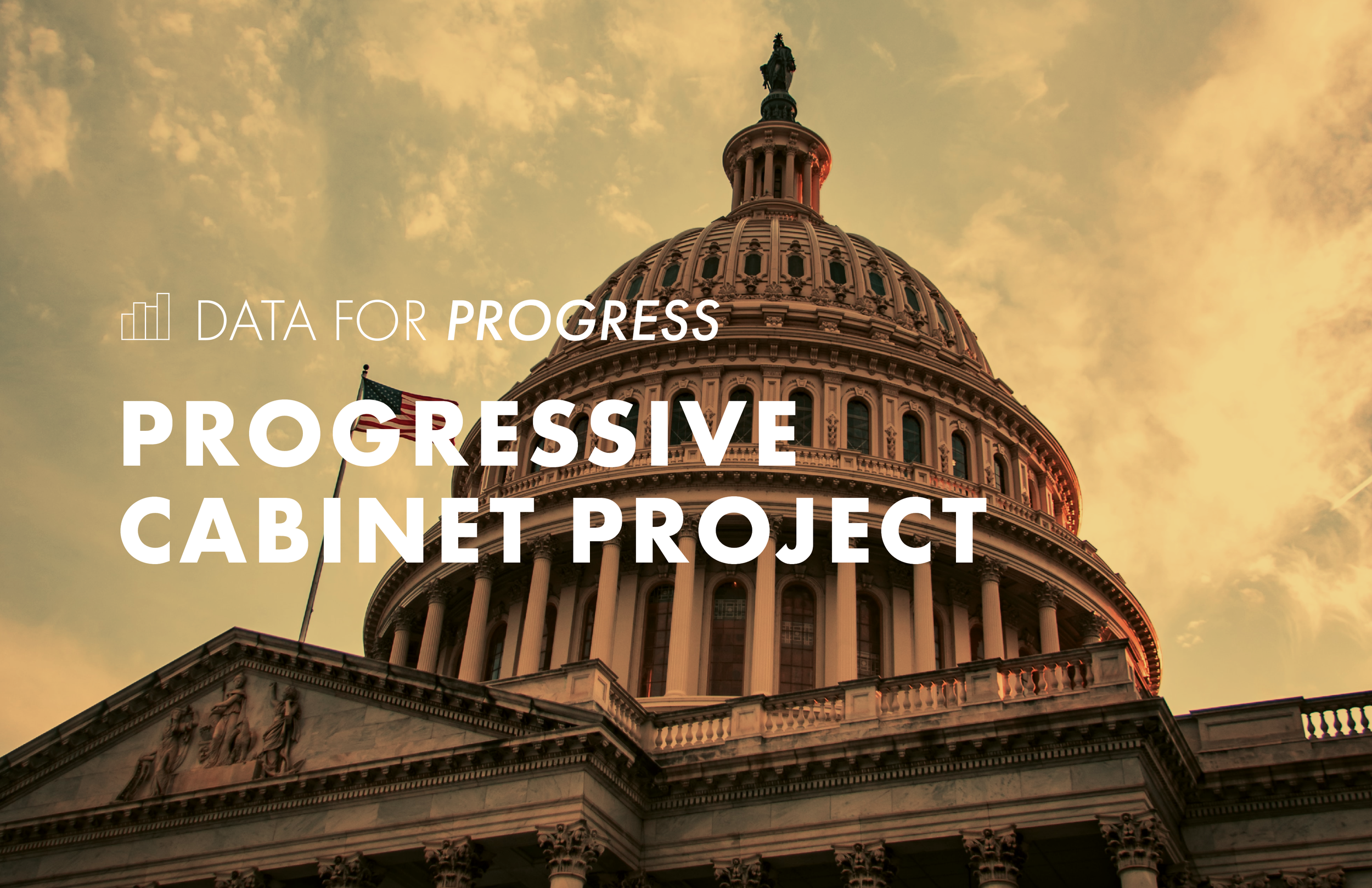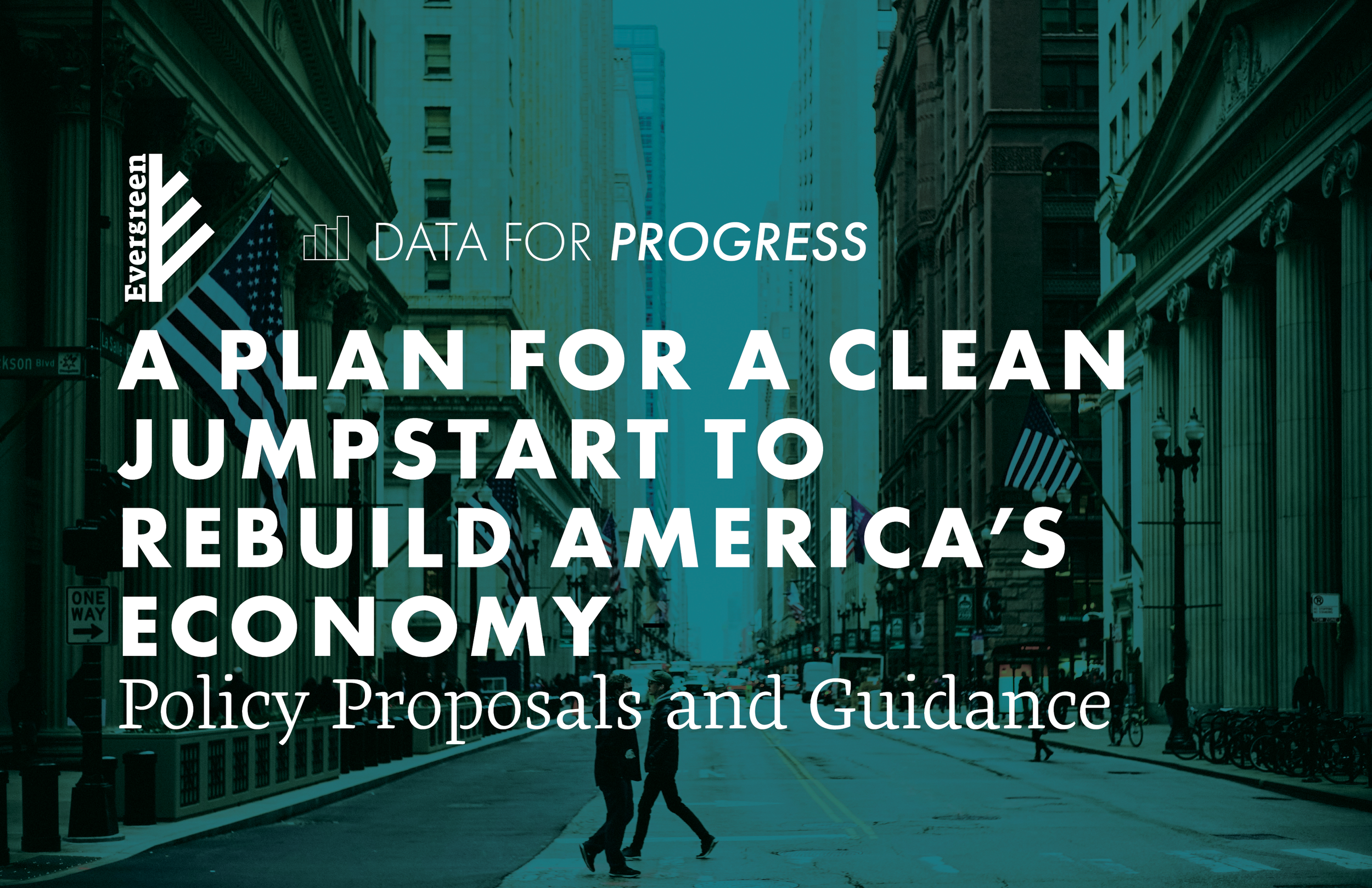Memo: Reclaiming Regulation - Making the Public’s Values Heard in Regulatory Analysis
By James Goodwin Senior Policy Analyst, Center for Progressive Reform, Ethan Winter Senior Analyst, Data for Progress, and Isa Alomran Intern, Data for Progress
Introduction
For nearly 40 years, the federal government has evaluated new regulations using a peculiar yardstick known as cost-benefit analysis. Despite the influential role this analysis plays in regulatory decision-making, little is known about how well this methodological approach reflects the values of the country more broadly.
Our polling finds that the current cost-benefit analysis regime is grossly out of sync with the values of voters. Specifically, we find that likely voters broadly disapprove of the preferred techniques for performing cost-benefit analysis, calling into question its usefulness and legitimacy as a policy tool. These results should be cause to question the democratic legitimacy of how regulatory decisions are made and the need for reforming how new regulations are evaluated.
As part of a January 2021 survey, Data for Progress polled 1,156 likely voters nationally to measure attitudes toward the federal government’s regulatory decision-making process, and more specifically, how the practices and techniques for evaluating regulations influence that process.
Regulations play a major, if often underappreciated, role in all our lives. Whether drinking water from our tap, buying food off a grocery store shelf, or strapping our children in car seats, we are able to go about our day without having to worry much about health and safety. And that is thanks to regulatory safeguards that public servants faithfully implement and enforce on our behalf. Without regulations, life, for many of us, would quite literally be nasty, brutish, and short.
Making good regulations is not easy, especially in a complex society like ours, where the need for safeguards is great. No doubt, then, it is important to have a system in place for evaluating the quality of regulations before they become enforceable.





